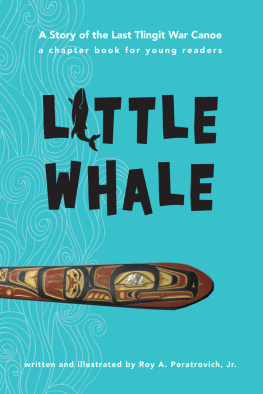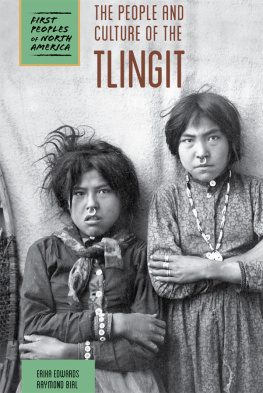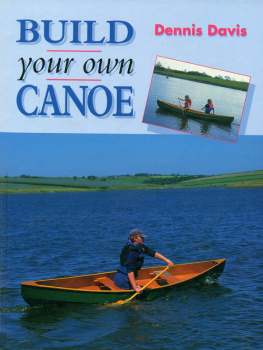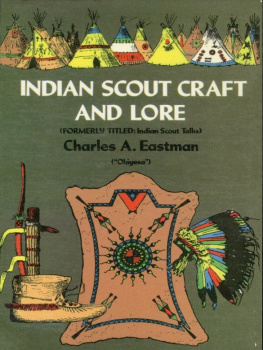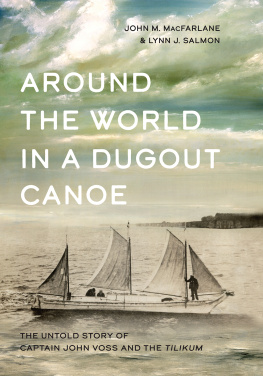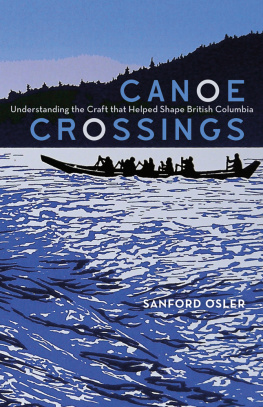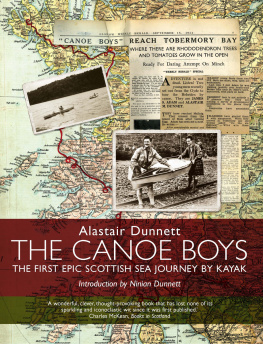AUTHORS NOTES
Little Whale is based on a real-life adventure of my grandfather, the late Andrew Wanamaker, when he was a small boy living in Sitka, Alaska. Andrew was a full-blooded Tlingit, who later in life became a Presbyterian minister in Southeastern Alaska. Ket was not his name, but it happens to be the name he gave to my youngest son, Doug. I chose to use the name because of Dougs determination and spirited outlook on life, and because its meaning fit my story.
Andrew was only 10 years old when he and his sister were invited to accompany their father on a 200-mile canoe trip from Sitka to a village located where Ketchikan is today. A clan member in the Ketchikan village had done a wrong to a member of my grandfathers tribal clan. According to Tlingit custom, a tribal leader whose clan member was injured must seek payment from the clan that inflictedthe injury to settle the wrong. Andrews father, my great-grandfather, was the tribal leader that led the way to the Ketchikan village. My grandfather never told me the nature of the wrong.
My grandfather and his sister travelled in the bow of their fathers canoe where they slept under a covering, just like Ket in this story. His fathers canoe was the lead canoe. All the canoes were armed for battle, just in case.
Due to poor weather and high seas, it took about 10 days for them to reach Ketchikan. When they arrived at Ketchikan, all the canoes pulled ashore on an island facing the village, and from this point, Andrews father paddled alone and unarmed to the Ketchikan village, where he was shot at. Thankfully, the shots missed.
Had there been a battle, this could have been the last, or one of the last, Tlingit battles. Instead, the issue was settled peacefully with a wonderful ceremony, where Andrew saw his first chicken.
As a young man living in Southeastern Alaska, I have shared experiences similar to my little hero, Ket. I have enjoyed the beautiful scenery and wildlife in Southeastern Alaska and witnessed many colorful Tlingit ceremonial dances. I have enjoyed all kinds of local Indian foods, wild berries and wild game, and have done my fair share of huntingand fishing. I have also been caught in some pretty rough and terrifying seas in small boats, although perhaps not quite as bad as Kets experience.
The part of this story about the whales didnt really happen on my grandfathers adventure. At least he never said it did...
Roy Andrew Peratrovich Jr.
Yil Ht Lukaax.di Clan
(Raven House of the Sockeye Clan)
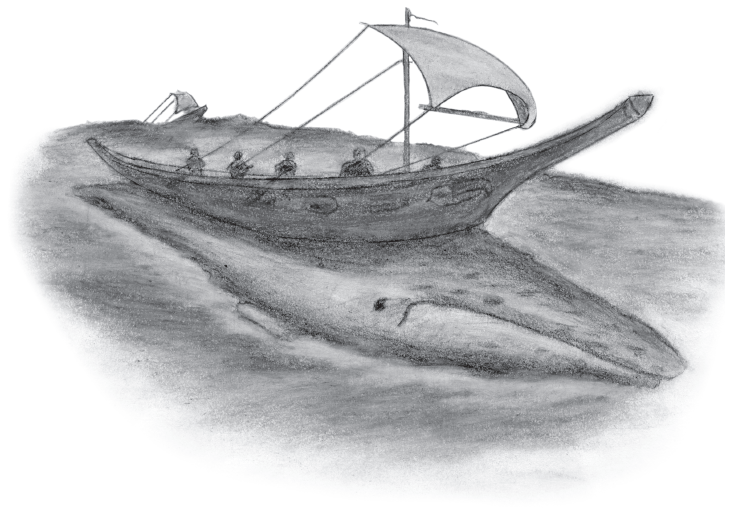
1
THE INVITATION
Long ago, before the white man first set foot on Alaska soil, only Indian tribes lived along the mountainous coastlines and shores of the islands of Southeastern Alaska. The Tlingit Indians are one of those tribes.
This story is about a 10-year-old Tlingit boy who, many years ago, lived in a village now known as Sitka. The boys name was Ket, which means Killer Whale in Tlingit. His father was a clan leader and village leader.
Ket received his name from his great-grandfather, who said he named Ket after the mighty Killer Whale because he sensed Ket would one day be a powerful leader himself. Ket was proud to be named after the Killer Whale, but sometimes wondered if his great-grandfather had made a mistake. Ket was the youngest in his family, andsmall for his age. Whenever Kets father took his brothers hunting or fishing, Ket had to stay behind to help his mother gather roots and berries instead.
Ket wanted to go hunting and fishing with the others more than anything. But no matter how many times he told his father that he wasnt afraid, and that he wanted to go too, his father said Ket was too young and had to wait a few more years. Ket felt more and more embarrassed every time he was left behind. Sometimes, he stayed awake worrying that hed never grow taller and never be able to go. It didnt help that his older brothers enjoyed teasing him by calling him the little plant hunter. Ket hated to be laughed at. He longed to make his father proud of him.
Early one morning, Kets father gently shook him, waking him from a sound sleep. Want to go fishing for chatl with me, Ket? Come, help me load our canoe.
Ket jumped out of bed, thrilled at the thought of fishing for halibut with his father. He had always loved the taste of the large, flat fish, but also knew it could be dangerous to fish for them. Some halibut weighed hundreds of pounds. Fish that size could easily hurt a fisherman or damage a canoe. Ket hoped today would be the day when he could finally prove to his father how brave he was.
Kets father had built the morning fire, but everyone else was still asleep. Be quiet, Ket, we dont want to wake the others, he warned.
Because his father was clan leader, Kets family lived in a separate part of the roomy, cedar-planked longhouse they shared with their close relatives. Ket was afraid that if he woke his brothers, his father might change his mind and bring them instead, so he quietly tugged on his soft deerskin clothes, slipped on his moccasins, and tiptoed around, gathering the rest of his things before stepping into the large common area.
He was glad to see the other families were still sleeping. They slept on benches under the windows, separated by woven mats hanging from the rafters. The windows were covered with mats as well, except when the weather turned badthen the men placed huge cedar planks over them.
Ket knew that the longhouses in other villages did not have windows. The windows had been his fathers idea, and Ket was pretty sure that at first everyone in his village thought his father was crazy. Nobody said anything, though, because that would be impolite. Instead, they simply watched Kets father and the other men in his clan cut squares from the wooden sides of their shared home. Their own longhouses were dark inside. The only light camefrom the shared fire pits, where they gathered to cook as the fire crackled and billowed smoke through the smoke hole in the roof above. Once they saw how much light the windows let in, they asked Kets father if they could copy his idea. Kets father not only gave his permission, but he and his men helped them cut their windows. Ket knew his father often had ideas that made life better for the People, and that was one reason his father was considered the village leader.
Ket hurriedly crept through the low entrance door and stepped outside. It was still dark, but he could see the sun beginning to show above the tall spruce trees behind the village. Ket thought it was probably going to be a sunny day. He smiled, but stopped when he saw his father looking at him with a curious expression on his face. He didnt want his father to think he was acting like a child. But Kets father only smiled back at him. Ket didnt know that his father was smiling because of how messy Kets glossy black hair looked.
The water was calm as Ket and his father skidded their dugout canoe down to the shoreline. There were many canoes in Kets village. Some were made of spruce, and others from cedar. The larger canoes were adorned with carved and painted clan emblems and were used for longer trips involvingtrading and war. The small canoes, like Kets fathers canoe, were mainly used for fishing and hunting. The larger canoes held about 20 people and required many paddlers. Kets fathers canoe held four to six people at most, depending on what supplies they were bringing along. His father had made the canoe by hollowing out a single cedar log. Ket breathed in the scent deeply. He had always liked the way his fathers canoe smelled. It reminded him of the smell of the forest after a heavy rain.

